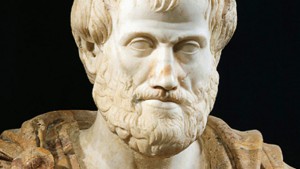 The Project
The Project
Virtue and Character are currently the focus of extensive international philosophical and psychological research, as well as being introduced as themes in educational formation at different levels from primary/elementary schooling through to professional training in business, health care, policing and the military. From a philosophical point of view these features raise a number of conceptual, normative and philosophical-historical questions:
- What is character? Is it something real and enduring or a figment of folk-psychology? If it is real to what extent is its development within the power of an agent, or open to the influence of others?
- J.S. Mill wrote “It matters not only what men do but what manner of men they are that do it”. How important is character as an element in moral theory and in practical ethics?
- What is virtue? Is it a real feature of agents or a notion left over from earlier theories of human nature? What is the relation between judgements of moral dispositions and judgements of actions, and evaluations of intended and forseen outcomes?
- What in general is the relationship between familiar descriptions of moral motivation and action and theoretical accounts of psychology?
- What is the place of assessments of character and virtue in evaluation of public figures, politicians, policy-makers, role-models, service providers, etc?
People
- John Haldane (St Andrews: Philosophy; Birmingham: Centre for Character and Virtue; Baylor: Philosophy), Project Leader
- Candace Vogler (Chicago: Philosophy)
- David Carr (Birmingham: Centre for Character and Virtue)
- Kristjan Kristjansson (Birmingham: Centre for Character and Virtue)
- Michael Beaty (Philosophy: Baylor University)
- Anthony O’Hear (Buckingham: Education; Royal Institute of Philosophy)
- Jens Timmermann (St Andrews Philosophy)
- Rowan Cruft (Stirling Philosophy)
- Ben Colburn (Glasgow Philosophy)
Recent Developments and Plans:
Recent Developments:
- Announced Partnership between St Andrews Centre for Ethics, Philosophy and Public Affairs and Birmingham Jubillee Centre for Character and Virtue (2015) http://www.jubileecentre.ac.uk/media/news/article/4221/Centre-Announces-New-Partnership-with-Centre-for-Ethics-Philosophy-and-Public-Affairs
- Haldane, Vogler, Carr and Kristjansson are members of a John Templeton Funded Project on ‘Virtue, Happiness, and the Meaning of Life’ the Principal Investigator of which is Candace Vogler (2015-).
- Academic launch of Templeton Project at University of South Carolina (December 2015) with public lecture by Haldane, broadcast online: http://www.youtube.com/watch?v=fO0Zdd_LdjQ
Work in Progress:
- John Haldane ‘Flourishing as an aim of Education’.
- John Haldane ‘Opportunities and Challenges surrounding Education’.
- John Haldane ‘Pluralism, the Public Good and the Common Good’.
- John Haldance ‘Virtuous Leadership’.
- John Haldane ‘Understanding Human Nature’.
- John Haldane ‘Taking History (and Philosophy) Seriously’
- A collection edited by David Carr, James Arthur & Kristjan Kristjansson entitled Varieties of Virtue Ethics (forthcoming from Palgrave MacMillan) with contributions from Haldane, Carr, Kristjansson and Vogler.
- Meeting between representatives of CEPPA, Birmingham Centre for Character and Virtue, Baylor University and Royal Institute of Philosophy to discuss forms of future co-operation at the Virtue and Wisdom conference (Oriel College, Oxford January 2017)
- Katherine Hawley: Self-Control Through Accountability to Others (through the The Philosophy and Science of Self-Control project)
Recent and Forthcoming Publications:
- John Haldane ‘Whither Moral Philosophy’ in R. Hain ed, Virtue, Medicine, and Modern Moral Philosophy (Notre Dame: University of Notre Dame Press, forthcoming).
- ‘Australia seen through a Philosophical Lens’ in P. Kurti ed. Beneath the Southern Cross: Looking for Australia in the 21st century (forthcoming)
- John Haldane ‘Character, Virtue and the Art of Teaching Art’ in British Journal of Educational Studies (forthcoming)
- John Haldane ‘Anscombe and Aquinas’ in R. Teichmann ed. The Oxford Handbook of Elizabeth Anscombe (Oxford: Oxford University Press, 2022).
- John Haldane ‘Knowledge of Oneself and of Others’ Philosophical Investigations, 45, (2022).
- John Haldane ‘Philosophy in Relation to other Disciplines exploring Human Nature’ Metaphilosophy 53 (2022).
- John Haldane ‘Educating Character in Philosophical Perspective’ in L. D’Olimpio, P. Paris. and A. Thompson, eds. Educating Character through the Arts (London: Routledge, 2022)
- John Haldane ‘Anscombe: Life, Action and Ethics in Context’ Philosophical News, (2020).
- John Haldane ‘Late 20th-Century Reception of Aquinas in Analytical Philosophy’ M. Levering ed. The Reception of Aquinas (Oxford: Oxford University Press, 2020).
- John Haldane ‘Alasdair MacIntyre, Philosophy and the University’ in R. Barnett & A. Fulford eds, Philosophers on the University (New York: Springer, 2020).
- John Haldane ‘A Philosopher of Singular Style’ in A. O’Hear ed. Four Philosophers: Anscombe, Foot, Midgley, Murdoch (Cambridge: Cambridge University Press, 2020).
- John Haldane ‘Evolution, Education and Wisdom’ in D. Davis ed, Educating for Wisdom in the 21st Century (South Bend, IN.: St Augustine Press, 2019).
- John Haldane ‘Some Questions about Virtue’ in Elisa Grimi ed, Virtue Ethics: Retrospect and Prospect (New York: Springer, 2019).
- John Haldane ‘Responding to Discord’ in James Arthur ed, Virtues in the Public Sphere: Citizenship, Civic Friendship, and Duty (London: Routledge, 2019).
- John Haldane ‘Virtue Ethics in the Medieval Period’ in Carr et al. eds, Varieties of Virtue Ethics (London: Palgrave MacMillan, 2016).
-

Reading Group on McPherson’s The Virtues of Limits
For S2 (2022-23) of the Cover to Cover Reading Group, we are reading McPherson’s book The Virtues of Limits.
-

Values, Voting, and Expertise
Katherine Hawley asks: How far can we trust experts when we’re deciding how to vote?
